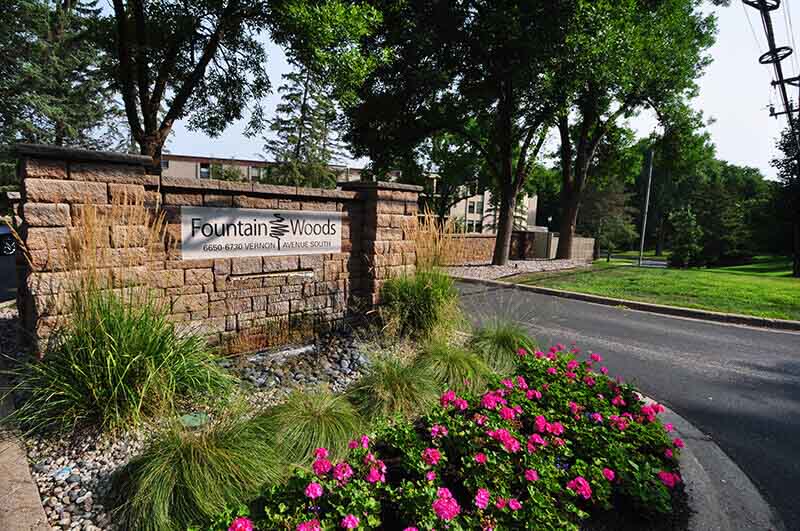Pets and Living in an HOA

Sunshine and getting outside for a walk are things we are all doing more of these days and that includes our pets. Just a few friendly reminders to be sure to pick up after your pets during this season. As more people are out walking due to the closure of many local gyms, it’s more important than ever to be diligent about picking up pet waste. The rainy weather in April also make pet waste more of a hazard for all. We encourage you to also keep your pet on a leash to ensure the safety of all in our communities. If this spring is the time to adopt a new pet once the local shelters are up and running again, then make sure you review your association’s governing documents for restrictions on the types of pets, breed, or size you can have in your home. There might also be a limit on how many pets are allowed.
The Benefits of Spring Cleaning

With all of us being at home for the time-being, this might be your year to do a deep-down spring clean. There are a lot of surprise benefits to spring cleaning! It helps alleviate allergy and asthma symptoms. Cleaning up pollutants like dust, pet dander, dirt, mildew, mold, and more will improve your air quality and help out any residents who have allergies. Dust all of your hard surfaces, vacuum your carpet (especially under the furniture), sanitize your hard surfaces (bathroom/kitchen especially),and air out rugs/cushions since soft surfaces attract dust. It curbs stress and improves productivity. A cluttered home, especially if you work out of a home office, can negatively affect your focus because of the overstimulation. Buy some organizers if you have a lot of objects without a place to store and get to work on decluttering. Try turning on some music while cleaning to help boost your endorphin levels. Music and the result of a clean space has been proven to make people happier. Make a pile for the things you no longer need, but are in good condition. The items will all set to move out to a donation center when they open again. A deep clean of your entire home might also alert you to any damages or things that need to be maintained. It’s always better to stay on top of those issues so that they don’t get any worse. Get a “fresh” start on 2020 by improving your mental and physical health with a good clean. If tackling the whole space at once seems too daunting, then take it one room at a time. Your home is your oasis, and it’s important to take care of it.
Don’t Break Your Own Rules in Rule Enforcement

Spring is here and that means Community Managers and Board members will be active in walk-arounds/site inspections while hoping to whip the association back in to shape after a long winter’s nap. Rule violations are always a focus in these efforts. Melted snow un-earths pet damage to turf; holiday lights still adorn balconies; neglected exterior maintenance items that homeowners may be responsible for become apparent; “big-boy toys” like boats and RVs begin to come out and park in driveways and guest parking; kid toys and sports equipment litter patios and common areas; and on and on. While associations should be assertive and fair in cleaning up these and other rule violations, there is one area that Boards can get themselves in trouble when it comes to enforcement – adhering to their own appeal opportunities and hearing processes. Many Declarations documents give some parameters and rights to members/homeowners when it comes to compliance and remedies in regard to rule enforcement. It is always wise to not only have a thorough Enforcement Policy (warning, first fine, second fine, etc), but also an appeal and hearing procedure as part of the Rules & Regulations document. This policy should mirror or further enhance -but never contradict – any existing language in the Declarations or ByLaws. The most common approach to creating fairness when it comes to rule remedies is to allow for an appeal and hearing procedure. Some rule violations, after all, might have extenuating circumstances, or sometimes the violation might have been applied to the incorrect offender. Allowing for an appeal procedure creates an opportunity to hear this out. This “appeal” should come in way of a “hearing” before the Board. Additionally, the Minnesota Common Interest Ownership Act (“MCIOA”) contemplates this notion when it provides that owners should be able to speak before the Board. A common approach that has been incorporated into more recent governing documents is to allow for a rule offender to be given 10 days to request a hearing before the Board. The Board then has 30 days to schedule said hearing from receipt of a formal request for a hearing (tip: which could and should be at the next scheduled Board meeting). The Board then has a reasonable amount of time to further deliberate the information presented and provide a formal written response to the owner either upholding or altering the rule violation and any corresponding sanctions. The key, however, to making this procedure work, is to be appropriately notify the homeowners of their right to appeal and hearing in all correspondences that related to the rule violation. Many Declarations (and therefore coinciding rules and enforcement policies) do state something along the lines of “the offender shall be given notice of the nature of the rule violation and the right to a hearing…” If any of the rule violation letters, be it the original warning or certainly any subsequent fines, did not state the owner had a right to an appeal and/or hearing, the Association did not follow through on their requirements for enforcement. Should the matter end up in court, a judge might likely side with the homeowner. While no one wants to add administrative steps, particularly with regards to owners breaking rules, it is important to be aware of any appeal and/or hearing procedures that may already be in place – and certainly it is important to be incorporating those requirements in enforcement efforts.
Year-End Requirements for Associations

Did you know that associations, as a registered non-profit corporation, are required to file Federal and State taxes? It is also important to be aware of any requirements of your governing docs for an annual financial review or audit. If you are governed under MCIOA (Minnesota Common Interest Ownership Act,which effects all condominium associations and any association incorporated after June 1, 1994),you are required to have, at minimum, an annual financial review. Note: you can have a vote of the membership to waive this requirement. Financial reviews and audits do differ; however, they achieve the same goal. That is to have an independent, licensed CPA review the association’s financials and the accounting practices of its management company. It should also be noted that MCIOA puts this criteria on who performs the financial review or audit. Your property manager and staff at Sharper are working hard behind the scenes to provide the engaged CPA firm with all of the materials required. Bank statements, reports, invoices, etc. all must be provided.
Board Tips: Make Your Meetings Matter

In previous issues we’ve discussed the importance of a strong meeting facilitator; we’ve suggested agenda formats to create better meeting efficiency; and recently we wrote on the principle that meetings should be regulated to making decisions. There’s no denying that we live in a culture of meetings. In this issue’s Board Tips, we offer one thought for you to consider regarding meeting frequency, and one tip for you to try to make your meetings more meaningful. Meeting Frequency – how often are you meeting as an association Board? This will certainly vary. Your Governing Documents may dictate a number of meetings to be held within a calendar year. The size and complexity of your community may require more or less meeting regularity. And situational issues or projects may dictate the volume necessity for a “meeting of the minds.” Consider the notion, however, that the more often you meet, the less productive you may be. Fewer meetings force focus – and therefore motivation to have tangible outcomes and measurable initiatives. Consider evaluating your meeting productivity. If you find that decisions are often times delayed or tabled, if your meetings are more social than business, and certainly if you have a limited number of items on your docket, consider having fewer meetings. See how it goes. The results might surprise you! Action List – to ensure that the meeting was, in fact, constructive with measurable outcomes, it is helpful to have a summary at the end of the meeting to identify and assign action items. Make a list! These can even be incorporated into the Meeting Minutes if it reflects a new business decision or resolution of the Board. Towards the end of a meeting, it is natural for people to just want to get home. Verbally summarizing and capturing, in writing, all action items is imperative. Make your meetings matter by ensuring they are productive and with measurable results.
Sharper Offers Board Training Session – January 15th

Sharper Management will present a free Board training seminar on Tuesday, January 15, 6 p.m. at the Bell Plaza office building in Bloomington (3800 American Blvd W). All Board members from community associations managed by Sharper are welcome to attend. “Board Basics: An Orientation for Board Members” will be led by Sharper’s two directors of community management, Candy Lee, CMCA, AMS, PCAM and Josh Reams, CMCA, AMS. Topics covered will include: * Defining “Association” * Roles & Responsibilities of the Board * Financial Fundamentals * An Overview to Governing Documents & State Statutes * How to Run Effective Board Meetings * Insurance Basics * Property Management Practices If you are interested in reserving your spot, please email info@sharpermanagement.com
Insurance: So Why Does the Association Have to File a Claim?

There are few things trickier and more complicated in the operation of a community association than that of insurance. What types of policies must the association have? What is the scope of coverage? How does the “master policy” work with the individual homeowner’s policy (“HO6”)? There are many components and questions. Perhaps the most seldom understood, and sometimes hotly debated, topic on insurance is when and why the association must file a claim on the master policy. In scenarios of massive losses like a hail storm, tornado or fire – or in cases where damage is limited to common areas such as a condo building hallway or a party room – it is pretty clear that the master policy should kick in and cover damages. But what about when a townhome wasn’t properly winterized and pipes freeze? Or what about the resident on the top floor of the condo building that let the bathtub overflow, flooding the units below, and causing tens of thousands of dollars of damage? Many Boards don’t understand why the association’s master policy would cover such losses where there is perceived negligence and/or the damage is inside of a unit, and therefore “not the associations responsibility.” It’s a natural reaction. While the scope of coverage from association to association will vary, it is pretty common that the governing documents are going to require the master policy covers “the replacement costs of the building AND units.” In fact, if the association falls under the Minnesota Common Interest Ownership Act (“MCIOA” or 515B), state statute requires that the master policy covers the “total amount of not less than full insurable replacement cost of the insured property.” It goes on to say “in the case of a common interest community that contains units, or structures within units, sharing or having continuous walls, siding or roofs, the insurance maintained under subsections (a) (1) shall include those units, or structures within those units, and the common elements.” What does this language mean? It means coverage is extended far beyond what many might expect the master policy to cover. Unless the association’s documents say otherwise, the policy might not cover finishing items such as carpeting, wall paper, or paint; but the subflooring, sheetrock, ceiling, framing, insulation is, in fact, insured by the master policy. Should there be a loss (such as those frozen pipes that burst in a townhome or the units affected in that condo building bathtub overflow) AND THAT LOSS EXCEEDS THE MASTER POLICY DEDUCTIBLE, there IS coverage for that loss. You may be asking; “Why should the association’s policy cover it?” There is a very simple answer. By state statute, the master insurance policy is PRIMARY. 515B states “(4) if at the time of loss under the policy there is other insurance in the name of a unit owner covering the same property covered by the policy, the association’s policy is primary insurance.” You can read the entire statute on insurance here – https://www.revisor.mn.gov/statutes/cite/515B.3-113 The association does not get to decide what is and isn’t “coverable.” Additionally, the association doesn’t get to decide and assign “negligence.” If there is a loss and damages exceed the master policy’s deductible, a claim should be filed and coverage should be awarded per the governing documents. Insurance agents know the game. If there is a loss, the homeowner’s HO6 agent/policy is going to ask the question – how much damage? If more than the deductible, they know the master policy has to kick in and the HO6 will cover the owner’s personal property, non-covered items such as finish work like carpet, wallpaper and structural coverage up to the deductible. What the association does get to decide is how the deductible should be handled. It can be absorbed as a common expense, or, more advisably, can be assessed against the owner(s) responsible or those that are benefiting. However, that’s an entirely different newsletter article. At the end of the day, the role of a master policy to the association, and the fiduciary duty of the Board to the members of the association, is to protect property values. Master insurance policies, state statutes and governing documents put in place comprehensive insurance requirements to ensure that property losses are handled and property conditions restored – thereby maintaining property values.
Sharper Holiday Greetings

All of us at Sharper Management would like to take a moment to thank you for a wonderful 2018. We experienced another incredible year of growth, adding a number of new clients from all over the metro area. We find it a tremendous honor to be entrusted to work with Boards to help manage homeowner associations and make them the best they can be. To help us provide the services necessary to do so, we continue to add more staff; continuously look for, and implement new ways, to improve our tools and technology; we strive to stay on top of industry trends; and find ways to stay connect to our Minnesota community. All of these things make up our core values and we feel we dove in to each in 2018. From company growth, staff development, wining industry awards, leadership involvement in industry organizations, community outreach initiatives, and more, you can read all about our fantastic 2018 on our website’s News section here – https://sharpermanagement.com/blog/ Again, we want to sincerely thank you for making 2018 a remarkable year and we look forward to all that 2019 has to offer. All of us a Sharper wish you and your family a wonderful Holiday Season!
Fountainwoods II Condo Association and Sharper Join Forces

Eden Prairie, Minn – (August 17, 2018) – Effective August 1st, Sharper Management is pleased to welcome Fountain Woods II Condominium Association to the stable of clients managed in the Edina area. Originally constructed in the early 70s and incorporated as Condominiums a decade later, Fountain Woods is a beautiful community made up of four condominium complexes tucked in a quiet area of Edina off of highway 169 and 62. There is a shared tennis court, shared pool and in each building there are multiple amenities such as party rooms and expansive common areas. The Fountain Woods II phase is made up of twin four-story buildings that house 154 units. “We are so excited to be a part of the Fountain Woods community,” said Dan Cunningham, Owner of Sharper Management. “We have had the great fortune of managing a number of condo buildings in Edina. This is certainly a special one. We look forward to the opportunity to work with the Board to help keep, and enhance, property values in this expansive and complex community.” Founded in 2010, Sharper Management is a locally-owned, mid-sized property management company offering a full suite of premiere services to homeowner and commercial associations of all sizes. Sharper Management currently provides services to the Minneapolis-St. Paul seven-county area.
Sharper Management Welcomes New Assistant Community Manager

Eden Prairie, MN, (September 20, 2018) – Sharper Management is pleased to welcome Grant Peterson to its team as the newest Assistant Community Manager. Peterson brings a strong background in real estate through his experience as an agent selling in the condo, co-op, townhome and other multi-family property markets. Additionally, he serves on the Board of Directors in the condominium association where he resides. “Being a homeowner in an association, I get to learn what works well and what is missing from the management side of things. I get to incorporate that into my management style,” said Peterson. “I am excited for the opportunity to be a ‘professional problem solver’ and work with Boards to help increase property values, benefiting all homeowners.” “Grant brings a unique perspective and solid skills set to our team of managers,” said owner and chief operating officer, Matt Froehlich. “We are excited to see how he can make an impact on the team of Community Managers he works with day-in and day-out – and to one day grow into a strong portfolio manager himself. We are excited to have him aboard.” Peterson is assigned to support a group of Community Managers, all of whom are overseen by Candy Lee and Josh Reams as the directors of community management. Founded in 2010, Sharper Management is a locally-owned, mid-sized property management company offering a full suite of premiere services to homeowner’s associations of all sizes. Sharper Management currently provides services to the Minneapolis-St. Paul seven-county area. For more information on Sharper Management services and employment opportunities, call 952-224-4777 or email to info@sharpermanagement.com.
